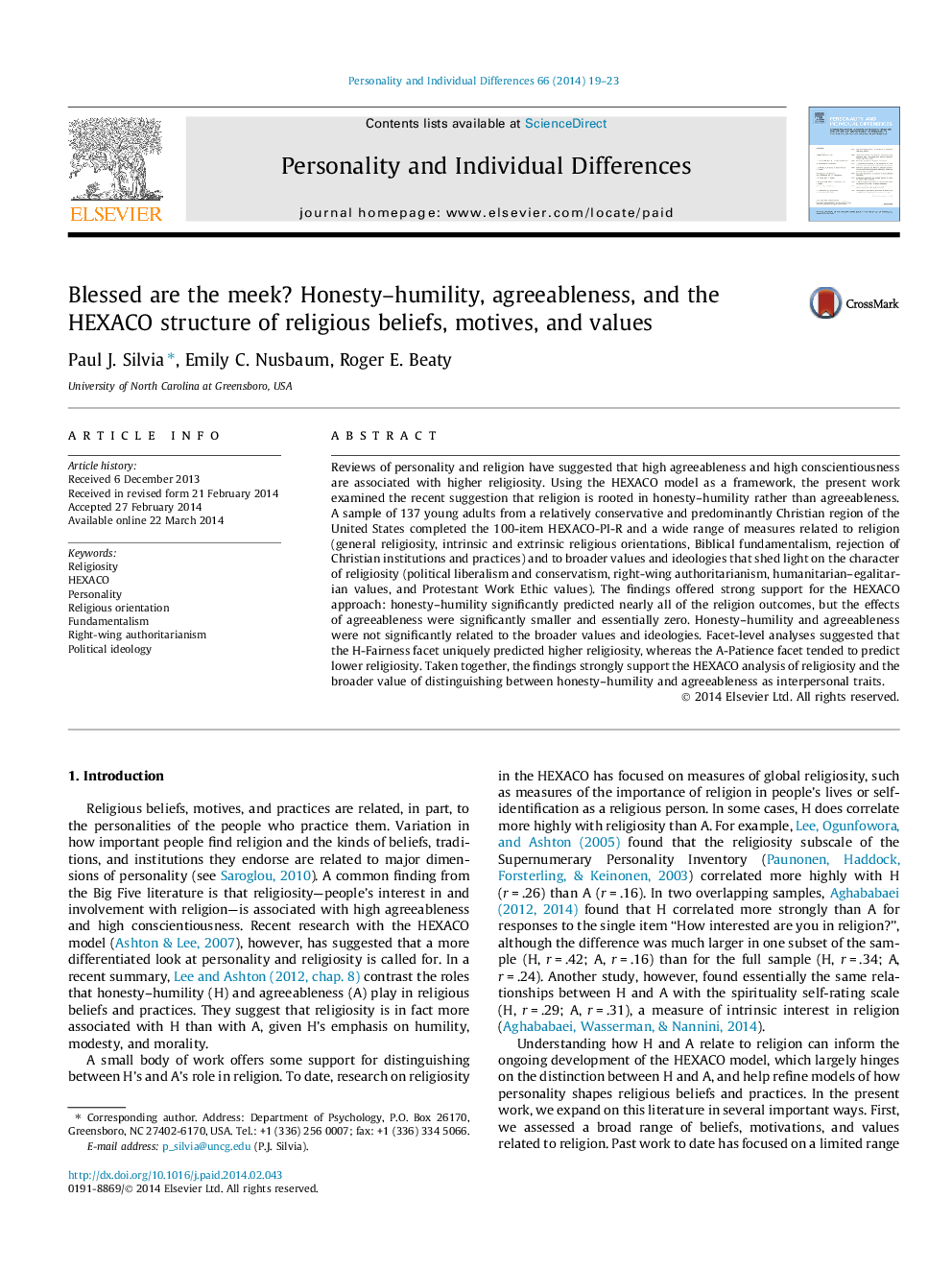| Article ID | Journal | Published Year | Pages | File Type |
|---|---|---|---|---|
| 890467 | Personality and Individual Differences | 2014 | 5 Pages |
•The role of personality in religiosity is controversial.•137 young adults completed the HEXACO-100.•Religious beliefs, motives, and values were measured.•Honesty–humility, not agreeableness, predicted religiosity.•The findings strongly support the HEXACO approach.
Reviews of personality and religion have suggested that high agreeableness and high conscientiousness are associated with higher religiosity. Using the HEXACO model as a framework, the present work examined the recent suggestion that religion is rooted in honesty–humility rather than agreeableness. A sample of 137 young adults from a relatively conservative and predominantly Christian region of the United States completed the 100-item HEXACO-PI-R and a wide range of measures related to religion (general religiosity, intrinsic and extrinsic religious orientations, Biblical fundamentalism, rejection of Christian institutions and practices) and to broader values and ideologies that shed light on the character of religiosity (political liberalism and conservatism, right-wing authoritarianism, humanitarian–egalitarian values, and Protestant Work Ethic values). The findings offered strong support for the HEXACO approach: honesty–humility significantly predicted nearly all of the religion outcomes, but the effects of agreeableness were significantly smaller and essentially zero. Honesty–humility and agreeableness were not significantly related to the broader values and ideologies. Facet-level analyses suggested that the H-Fairness facet uniquely predicted higher religiosity, whereas the A-Patience facet tended to predict lower religiosity. Taken together, the findings strongly support the HEXACO analysis of religiosity and the broader value of distinguishing between honesty–humility and agreeableness as interpersonal traits.
